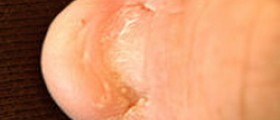
Down syndrome is a chromosomal disorder manifesting through various signs of both physical and mental impairment. It manifests once an extra chromosome appears on the 21st chromosome. Statistically, this happens once in every 1000 births. However, when it does happen, the child is bound to develop slower than other children being prone to many physical and mental illnesses such as dementia, heart disease, vision and hearing problems, thyroid conditions, intestinal problems and bone diseases. Older women who become pregnant have greater chances of giving birth to a baby with Down syndrome.
Reasons behind Down Syndrome
As far as our genetic information is concerned, we inherit it from both our father and mother in form of two pairs of 23 chromosomes. Unfortunately, a fault is present in this genetic information, whenever a person suffers from Down syndrome. Basically, he/she gets 47 chromosomes, instead of 46. Subsequently, the extra chromosome is responsible for health problems the child experiences.
Manifestations of Down Syndrome
Even though symptoms of this condition may vary from one affected individual to another, there are about 100 distinctive features of Down syndrome which are medically identified. Namely, children with this condition usually have flat faces and noses, a broad forehead with a short neck and an upward slant to the eye and a narrow slit to the eyes. Moreover, the iris of the eyes may contain white spots, signifying this condition. Finally, the ears of people with Down syndrome look unusual and they have small mouths with a tongue which commonly sticks out.
As for their arms and legs, these are shorter than normal, along with the fingers and toes. The little fingers are known to curve to the inside. Additionally, there is a single crease on the palms of people with Down syndrome and an abnormal space between their first and second toe.
Other signs of Down syndrome are decreased muscle mass and excessive flexibility of joints, accompanied by weak reflexes. Ultimately, children with Down syndrome usually suffer from numerous learning disabilities.
Diseases and Down Syndrome
Children with this syndrome are more likely to develop some sort of a serious health disorder during their lifetime. Heart defects, gastrointestinal problems, respiratory issues, leukemia and proneness to infections due to excessively weak immune system are all possible outcomes of this condition. Sometimes, these problems can be surgically or medically treated.
As people with Down syndrome get older, their skin becomes dry and harsh. This can lead to many skin conditions as well, including dermatitis and atopic eczema.

















Your thoughts on this
Loading...